As we slip into the season of colds and flu, what are some of the steps we can take to improve our chances of evading them? Firstly, ensure your immune system is provided with all the essential nutrients. Here are some useful foods.
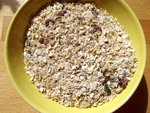 Beginning with breakfast, have an oat-based cereal eg museli, or make some oat porridge: oats contain a type of fibre known as beta-glucan which stimulates the white blood cells and macrophage cells of our immune system.
Beginning with breakfast, have an oat-based cereal eg museli, or make some oat porridge: oats contain a type of fibre known as beta-glucan which stimulates the white blood cells and macrophage cells of our immune system. 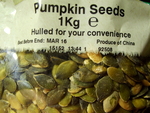 This is also an opportunity to get some extra zinc by sprinkling a small palmful of pumpkin seeds over your cereal: in the laboratory, zinc has been shown to stop the cold virus multiplying, but studies also suggest it can shorten the duration of a cold (NHS Choices).
This is also an opportunity to get some extra zinc by sprinkling a small palmful of pumpkin seeds over your cereal: in the laboratory, zinc has been shown to stop the cold virus multiplying, but studies also suggest it can shorten the duration of a cold (NHS Choices). 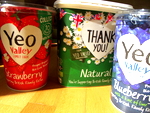 Another ingredient you might like to include with breakfast, is a probiotic preparation, such as live or bio yoghurt, kefir, Yakult or Actimel. Probiotics appear to be useful in preventing upper respiratory tract infections (Cochrane Commentary).
Another ingredient you might like to include with breakfast, is a probiotic preparation, such as live or bio yoghurt, kefir, Yakult or Actimel. Probiotics appear to be useful in preventing upper respiratory tract infections (Cochrane Commentary). 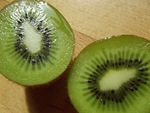 Finally, as regular intake of vitamin C appears to slightly shorten the duration and severity of a cold in some individuals (Cochrane Library), you could slice a kiwi or other citrus fruit over your cereal.
Finally, as regular intake of vitamin C appears to slightly shorten the duration and severity of a cold in some individuals (Cochrane Library), you could slice a kiwi or other citrus fruit over your cereal. 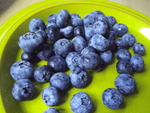 A laboratory study suggests blueberries might also hold promise as an immune system aid (Oregon State University).
A laboratory study suggests blueberries might also hold promise as an immune system aid (Oregon State University).
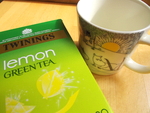 Having followed all that breakfast advice, we could turn to a mid-morning cup of tea. Black, green and white tea all contain catechins which seem according to a study in Japan, to reduce the likelihood of catching flu.
Having followed all that breakfast advice, we could turn to a mid-morning cup of tea. Black, green and white tea all contain catechins which seem according to a study in Japan, to reduce the likelihood of catching flu.
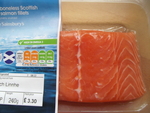 On to lunch or dinner, oily fish such as salmon, herring or mackerel offers you the benefits of omega-3 oils. Work done at Michigan State University suggests that the DHA in fish oil may enhance the activity of B-cells (specialised white blood cells) in your immune system.
On to lunch or dinner, oily fish such as salmon, herring or mackerel offers you the benefits of omega-3 oils. Work done at Michigan State University suggests that the DHA in fish oil may enhance the activity of B-cells (specialised white blood cells) in your immune system. 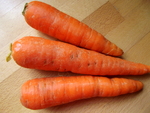 So consider a smoked salmon sandwich for lunch, or for a hot meal, have a salmon steak with which you could include sweet potato and carrots; these are rich in beta-carotene which the body converts to vitamin A and which performs a wide range of functions in the immune system.
So consider a smoked salmon sandwich for lunch, or for a hot meal, have a salmon steak with which you could include sweet potato and carrots; these are rich in beta-carotene which the body converts to vitamin A and which performs a wide range of functions in the immune system. 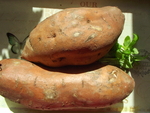 The salmon is also providing you with vitamin D, which like vitamin A, enables an array of immune system processes. Your breakfast milk and yoghurt will have contained vitamin D too.
The salmon is also providing you with vitamin D, which like vitamin A, enables an array of immune system processes. Your breakfast milk and yoghurt will have contained vitamin D too.
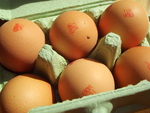 If you are looking for a light evening meal, try a mushroom omelette: the eggs and mushrooms offer more vitamin D, whilst the protein contains the essential amino acid building blocks for our immune system cells.
If you are looking for a light evening meal, try a mushroom omelette: the eggs and mushrooms offer more vitamin D, whilst the protein contains the essential amino acid building blocks for our immune system cells. 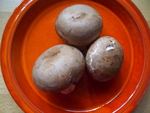 (You can significantly enhance the vitamin D content of your mushrooms by leaving them gills upwards in sunshine for an hour after buying them.) There are other ingredients in mushrooms which further support immune function.
(You can significantly enhance the vitamin D content of your mushrooms by leaving them gills upwards in sunshine for an hour after buying them.) There are other ingredients in mushrooms which further support immune function. 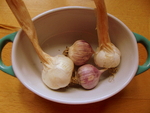 If it’s to your taste, add some garlic: a study published in 2014 suggested that people who took garlic supplements over a three month period, had fewer colds than those who took a placebo.
If it’s to your taste, add some garlic: a study published in 2014 suggested that people who took garlic supplements over a three month period, had fewer colds than those who took a placebo.
 Secondly, following diet, try to get sufficient sleep, avoid overwork, and keep stress levels down.
Secondly, following diet, try to get sufficient sleep, avoid overwork, and keep stress levels down.
Finally, attend to basic personal hygiene. Wash your hands at intervals eg at work where colleagues are touching the same door handles, office equipment etc, or after shopping when you have handled a supermarket trolley, petrol pumps etc.
These steps combined cannot completely eliminate the risk of a cold, but should give you a better chance of avoiding one as you are optimising defences on so many levels.
